Buffalo, New York had a turbulent, early-era National Football League team that operated under multiple names and several different owners between the 1910s and 1920s. The early NFL-era franchise was variously called the Buffalo All-Stars from 1915 to 1917, Buffalo Niagaras in 1918, the Buffalo Prospects in 1919, Buffalo All-Americans from 1920 to 1923, Buffalo Bisons from 1924 to 1925 and in 1927 and 1929, and the Buffalo Rangers in 1926. The franchise, which was experiencing financial problems in 1928, did not participate in league play that season.
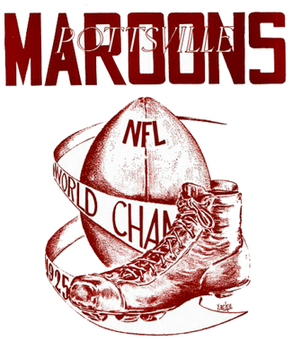
The Pottsville Maroons were an American football team based in Pottsville, Pennsylvania, in the northeastern part of the state. Founded in 1920, they played in the National Football League (NFL) from 1925 to 1928. In 1929 they relocated to Boston, where they played one season as the Boston Bulldogs.
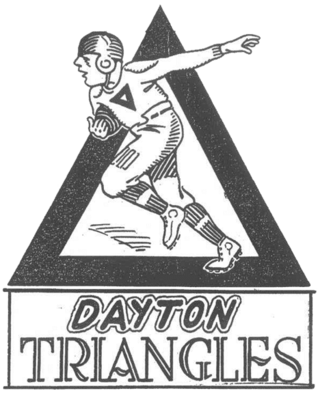
The Dayton Triangles were an original franchise of the American Professional Football Association in 1920. The Triangles were based in Dayton, Ohio, and took their nickname from their home field, Triangle Park, which was located at the confluence of the Great Miami and Stillwater Rivers in north Dayton. They were the longest-lasting traveling team in the NFL (1920–1929), and the last such "road team" until the Dallas Texans in 1952, who, coincidentally, descended from the Dayton franchise.
The Kenosha Maroons were a National Football League football team in Kenosha, Wisconsin. Officially, the club only played in the league during the 1924 season, dissolving after posting no wins in five games.

The Manitoba Bisons are the athletic teams that represent the University of Manitoba in Winnipeg, Manitoba, Canada. The football team plays their games at Investors Group Field. The soccer team play their home games at the University of Manitoba Soccer Fields while the track and field teams use the University Stadium as their home track. The University has 18 different teams in 10 sports: basketball, curling, cross country running, Canadian football, golf, ice hockey, soccer, swimming, track & field, and volleyball.
Samuel Davis Mills Jr. was an American professional football player who was a linebacker for 12 seasons in the National Football League (NFL) for the New Orleans Saints and Carolina Panthers. He also played for three seasons for the Philadelphia / Baltimore Stars of the United States Football League (USFL), where he won two championships in 1984 and 1985. He was inducted into the Pro Football Hall of Fame in 2022.

James Wilson Jeffcoat, Jr. is an American former professional football player who was a defensive end in the National Football League (NFL) for the Dallas Cowboys and Buffalo Bills. He played college football for the Arizona State Sun Devils. He won two Super Bowls with the Cowboys over the Bills. After his playing career, he became a coach.
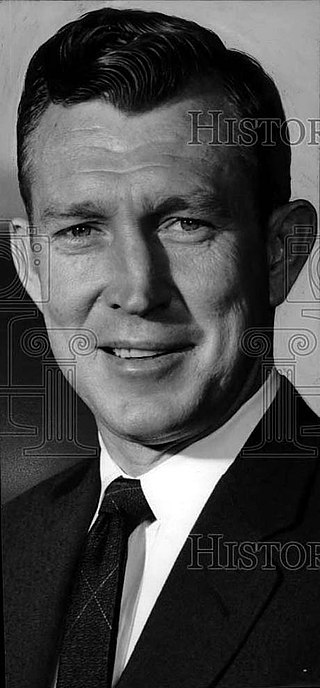
Glenn Dobbs Jr. was an American professional football player in the All-America Football Conference (AAFC). A skilled tailback, quarterback, punter and return specialist, Dobbs was named the AAFC's MVP in 1946. After sitting out the 1950 season with a knee injury, Dobbs was persuaded to come out of retirement to play with the Saskatchewan Roughriders of the Western Interprovincial Football Union (WIFU), forerunner of the Canadian Football League (CFL). In 1951 Dobbs was named the Most Valuable Player of the WIFU. Dobbs played college football at the University of Tulsa, where he was later head football coach from 1961 to 1968 and athletic director from 1955 to 1970. He was inducted into the College Football Hall of Fame as a player in 1980.

Charles Christopher Spielman is an American former professional football player who is a special assistant to the owner and CEO for the Detroit Lions of the National Football League (NFL). He played linebacker for the Ohio State Buckeyes, twice earning All-American honors. He played professional football for the Detroit Lions in the NFL, where he was a three-time All-Pro. He also played for the Buffalo Bills and Cleveland Browns, and coached for the Arena Football League (AFL)'s Columbus Destroyers. He was a broadcaster for Fox Sports and ESPN from 1999 to 2020.

James Gleason Dunn Conzelman was an American football player and coach, baseball executive, and advertising executive. He was inducted into the Pro Football Hall of Fame in 1964 and was selected in 1969 as a quarterback on the National Football League 1920s All-Decade Team.

Wilbur Francis "Pete" Henry was an American football player, coach, and athletic administrator. He was a charter inductee into both the College Football Hall of Fame in 1951 and the Pro Football Hall of Fame in 1963.
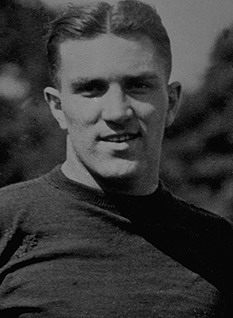
Walter Frederic Koppisch was an American football halfback in the National Football League (NFL) for the Buffalo Bisons and the New York Giants. He played college football for the Columbia Lions.

Richard Harvie Rauch was an American football player and coach. Rauch attended Pennsylvania State University. He was a player-coach for the Boston Bulldogs, New York Yankees and the Maroons over the course of his five-year career. Rauch made his professional debut in the National Football League (NFL) in 1925 with the Pottsville Maroons. He was also the first NFL coach to institute daily practices.

Pedro "Pete" Calac was a professional football player who played in the Ohio League and during the early years of the National Football League (NFL). Over the course of his 10-year career he played for the Canton Bulldogs, Cleveland Indians, Washington Senators, Oorang Indians and the Buffalo Bisons.
James Marcellus Kendrick was a professional American football player during the early years of the National Football League (NFL) with the Toledo Maroons, Canton Bulldogs, Louisville Brecks, Chicago Bears, Hammond Pros, Buffalo Bisons, Rochester Jeffersons, Rock Island Independents, Buffalo Rangers and the New York Giants. Kendrick was a part of the Bulldogs' 1922 NFL championship team and the Giants' 1927 NFL Championship team.
Franklin Zham Culver was a professional football player who played three seasons in the National Football League, with the Buffalo All-Americans, Rochester Jeffersons, Buffalo Bisons and the Canton Bulldogs. He played from the 1923 season through the 1925 season. Culver's Bisons teammate, Jim Ailinger called Culver "a pretty damn good center" in an interview before his death on March 27, 2001.
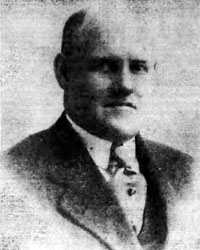
George Wilder "Dim" Batterson was an American football coach for high school, college and professional teams. Batterson's ability to turn out players of All-American ability and knack of moulding Harvard Cup championship eleven at Masten Park high school in Buffalo, New York earned him the distinction of being one of the most astute scholastic coach in western New York state history.

Buffalo, New York and its greater metropolitan area is currently home to two major league sports teams, the Buffalo Sabres & Buffalo Bills. Buffalo is also home to several other major and minor league sports teams, including the Buffalo Bandits, Buffalo Bisons, Buffalo eXtreme and FC Buffalo. Several local colleges and universities are active in college athletics, including Canisius College, Niagara University and The State University of New York at Buffalo at the NCAA Division I level. Buffalo was host city for the 1993 World University Games, for which Burt Flickinger Center and University at Buffalo Stadium were built.
Matt Sheldon is the Director of Research and Football Strategy for the Las Vegas Raiders of the National Football League (NFL). He is a professional football coach, analyst and researcher with extensive NFL experience in research/analytics, in-game strategy, coaching and video editing with the New York Jets, Miami Dolphins, Chicago Bears, Minnesota Vikings, Buffalo Bills, St. Louis Rams and New Orleans Saints. Additionally, he has worked with the Montreal Alouettes of the Canadian Football League (CFL) and the Wisconsin Badgers of the NCAA. Sheldon also served as director of sports solutions development with Zebra Sports, the official provider of player tracking for the NFL. Sheldon has consulted with teams and leagues at the professional, olympic, collegiate and high school levels in North America and Europe. His areas of focus include strategy/tactics and decision-making, athlete tracking systems and elite athlete performance. He is a graduate of the University of Minnesota's Carlson School of Management and the University University of Wisconsin M.B.A. Program.

Samuel Cordovano was an American collegiate and professional football player, coach, professional wrestler and co-founder of the Buffalo Bills of the All-America Football Conference (AAFC). He is enshrined in the Georgetown University Sports Hall of Fame.














